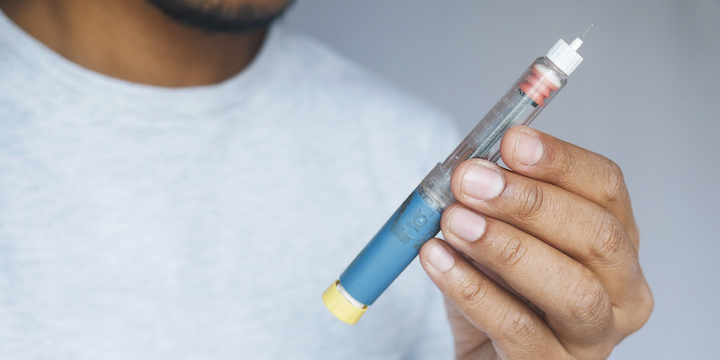Has your healthcare team talked to you about adding insulin to your treatment regimen? Many people have different thoughts about starting insulin.
Insulin and other injectables

Insulin (rapid-acting, short-acting, intermediate-acting, long-acting)
Insulin is a hormone produced by the pancreas that stimulates cells in the body to remove glucose from the blood for storage or usage. Insulin is normally released by the body following a meal to bring high sugar levels back into the normal range.
GLP-1 Agonists (e.g. liraglutide, exenatide, dulaglutide, lixisenatide)
These medications, also known as incretin mimetics, work by copying the functions of the natural incretin hormones in your body that help lower post-meal blood glucose levels. These functions include stimulating insulin secretion, inhibiting the release of glucagon and slowing glucose absorption into the bloodstream.
Combination insulin products
Basal insulin has been combined with GLP-1 agonists in a single injection and have similar advantages as oral combination medications – reduced side effects, simplified regimens, improved efficacy.
Once-weekly insulin: a new option for Canadians with diabetes
Diabetes affects millions of people in Canada, and insulin therapy is often a central component of its management.
How to overcome the fear of giving yourself an insulin injection
Yearly flu shots, immunizations and injections are common situations that awaken needle fears. Some people report being worried about or frightened of receiving an annual needle. However, it is much more challenging to give yourself insulin injections as part of your daily diabetes management.
How does insulin fit into diabetes treatment?
Insulin that is injected into the body is a replacement or supplement to your body’s natural insulin, and is used to treat both type 1 and type 2 diabetes.
Insulin pump coverage in Canada
Several provinces in Canada cover the costs of insulin pumps for select groups of people with diabetes. Discover if you are eligible.
Does insulin mean we’ve failed?
When a healthcare practitioner recommends that a patient with diabetes should add insulin to their oral medications or entirely replace oral medications with insulin, the response is often one of dismay. Such patients often feel that the move to insulin means they have in some way failed in their diabetes self-management.







